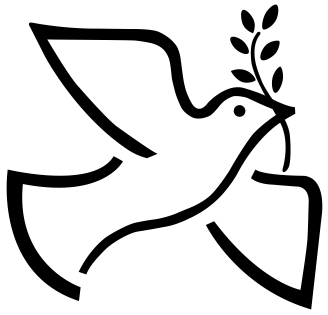TOWARDS GLOBAL PEACE
 We often talk of peace in the context of war. But this is a very narrow and restricted notion of peace. Peace is deeply linked with the entirety of human life. Peace is a complete ideology in itself. Peace is the only religion for both—man and the universe. It is the master-key that opens the doors to every success. Peace creates a favourable atmosphere for success in every endeavour. Without peace, no positive action—small or big—is possible.
We often talk of peace in the context of war. But this is a very narrow and restricted notion of peace. Peace is deeply linked with the entirety of human life. Peace is a complete ideology in itself. Peace is the only religion for both—man and the universe. It is the master-key that opens the doors to every success. Peace creates a favourable atmosphere for success in every endeavour. Without peace, no positive action—small or big—is possible.
THE POWER OF PEACE
The power of peace surpasses the power of violence. Those who fail to recognize this truth resort to violent actions to achieve their goals, exposing their own foolishness. Peace is the path of wisdom, while violence is the path of the foolish. Peace is a source of strength, while violence is a sign of weakness.
Peace and war are not merely two equally effective approaches to achieving goals. They represent two distinct standards of humanity. Adopting the path of peace elevates humanity, while choosing violence lowers it.
In moments of crisis, choosing peace cultivates positive thinking, raises moral standards, and leads to personal growth. It demonstrates humanity. Conversely, opting for violence descends one into perdition, revealing their true nature.
Inclinations towards peace or violence reveal a person’s true character. Peace demonstrates humanity, while violence reveals animality, despite outward appearances. Peaceful behaviour signifies self-control, a great strength that prevents negative actions like violence. Without self-control, individuals may become enraged and resort to violent actions. Controlling anger is the path of the peaceful, while losing control in the face of provocation is the path of the violent.
In any controversy, one way to attempt to settle matters is through violent confrontation. However, the better approach is to initiate reconciliation from the very beginning. Reconciliation serves as a safety valve in situations with conflicting interests and explosive tempers. Therefore, during provocation, adopting a conciliatory stance is more advisable than confrontation.
Nevertheless, it’s rare for reconciliation to perfectly align with the desires of both parties. In most cases, reconciliation requires a unilateral approach. One party must suppress its own inclinations and demonstrate a willingness to end the dispute in accordance with the other party’s wishes.
History demonstrates that success for individuals and communities has been achieved through conciliatory methods. The path of conflict and confrontation has never led to genuine success in this world.
Why is this unilateral reconciliation more beneficial? The primary advantage is that it avoids unnecessary energy and time spent in wrangling, allowing for constructive action. Conversely, confrontation halts all such activities.
History demonstrates that success for individuals and communities has been achieved through conciliatory methods. The path of conflict and confrontation has never led to genuine success in this world. Reconciliation is crucial because it enables individuals to fully utilize available opportunities, while confrontation channels all energy into planning the destruction of others. Consequently, construction is never engaged in, despite the secret of true success lying in construction and consolidation rather than destruction.
Many justify violence by claiming to be victims of plots and conspiracies, necessitating retaliation. However, this excuse is unfounded. What is commonly perceived as a plot is actually a manifestation of the established natural law in the present world.
In today’s world, the genuine challenge for a community isn’t the presence of enemies plotting against it. The real issue lies in its inability to eliminate its vulnerabilities that make it susceptible to exploitation. A state of peace serves as a protective shield against such exploitation. Violence, on the other hand, undermines security by breaching the defense line. While violence may be considered a weakness, peace emerges as a powerful force wielded by individuals who prioritize peace.





